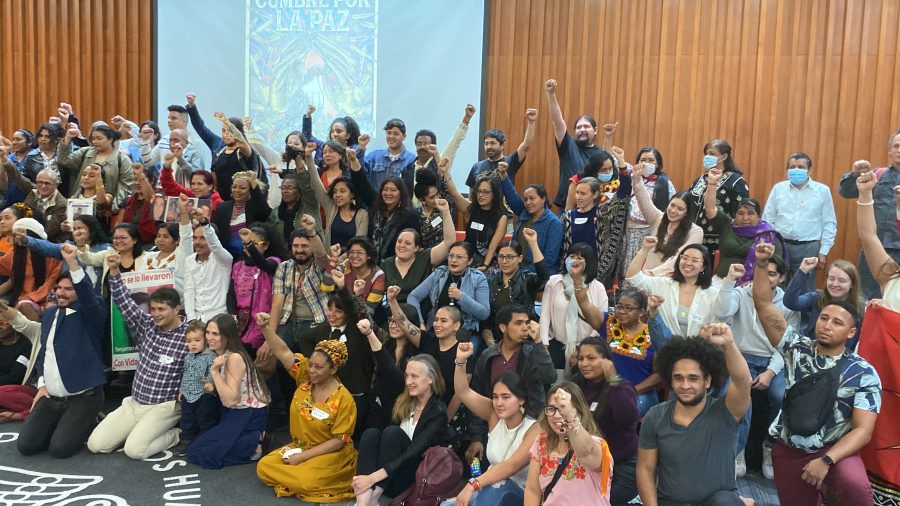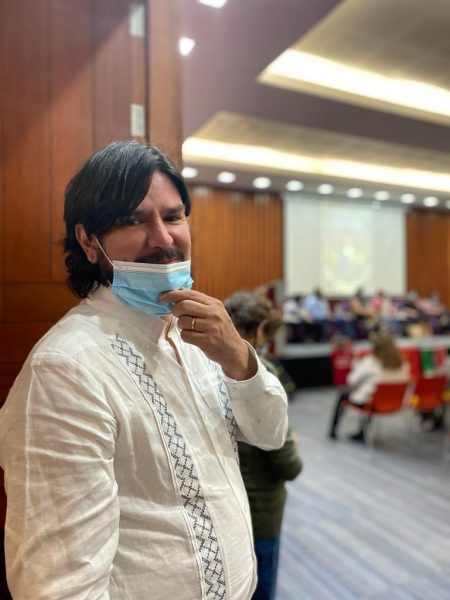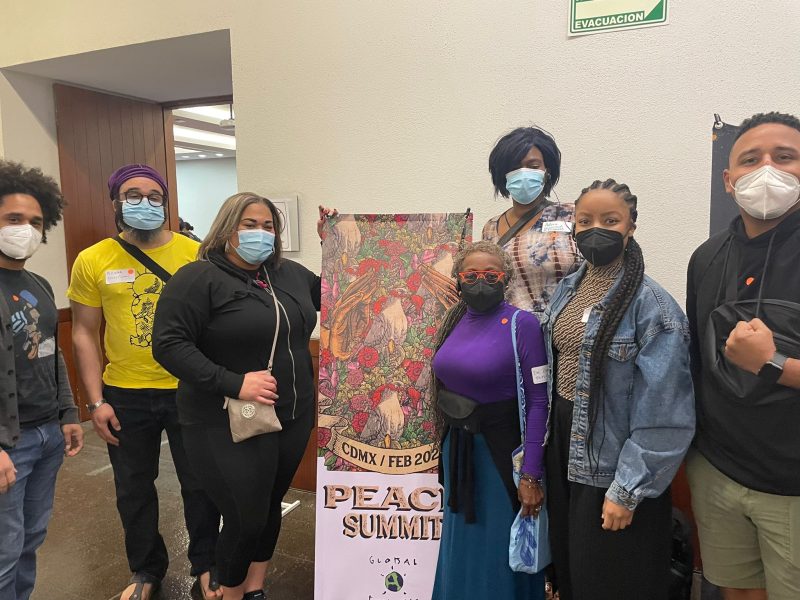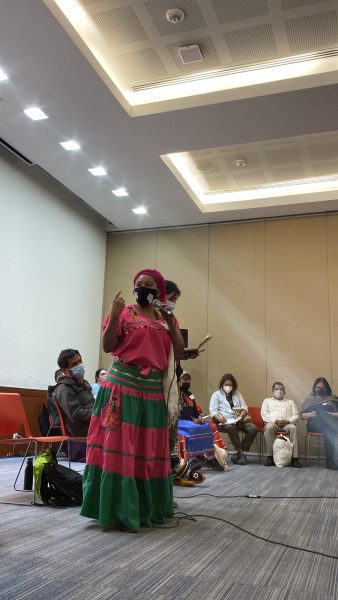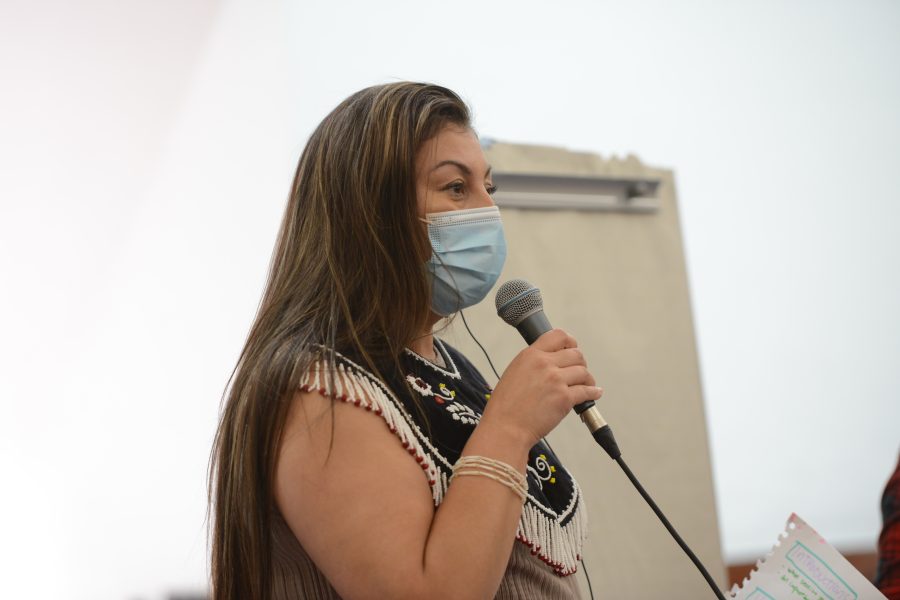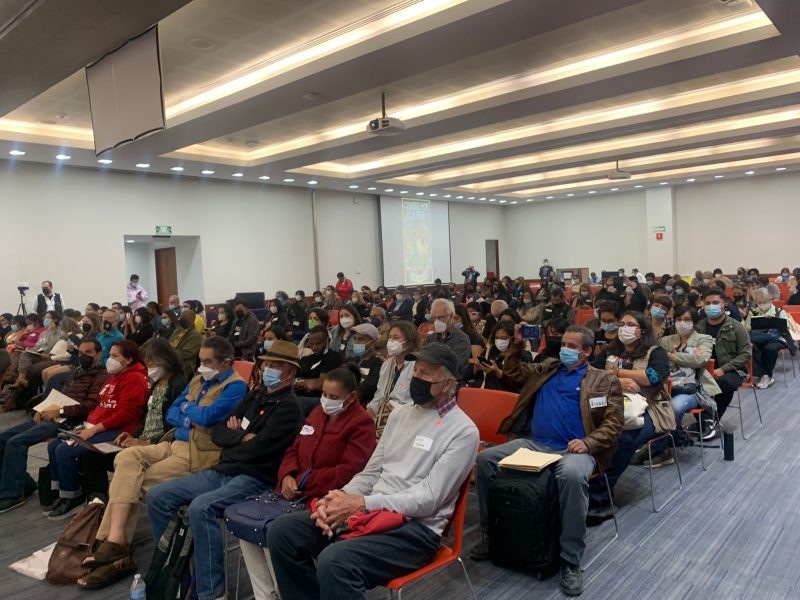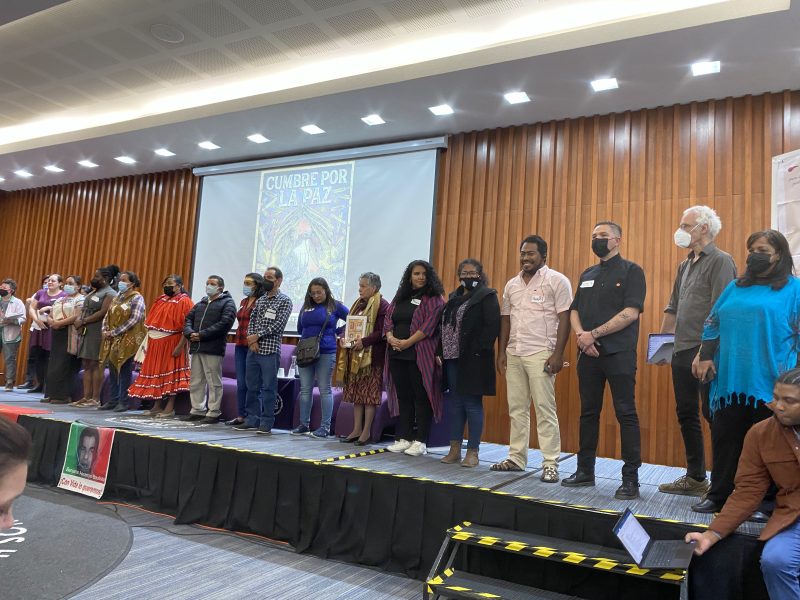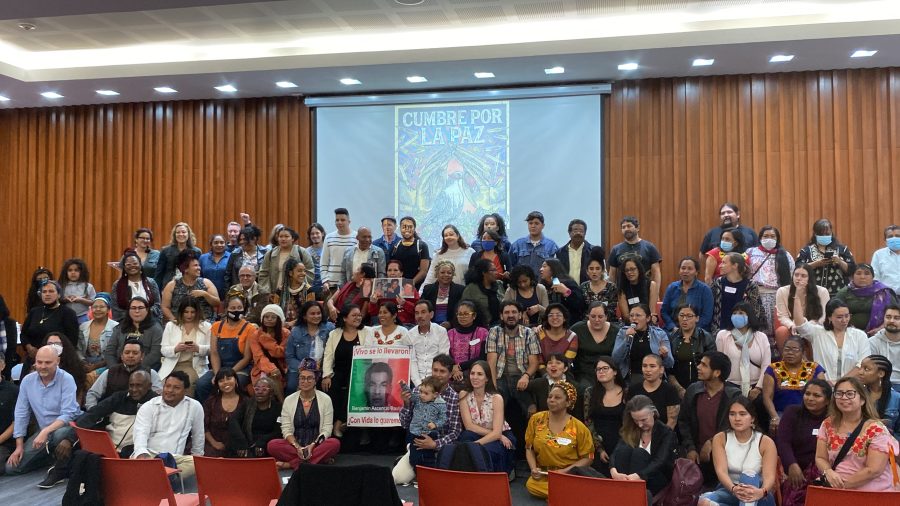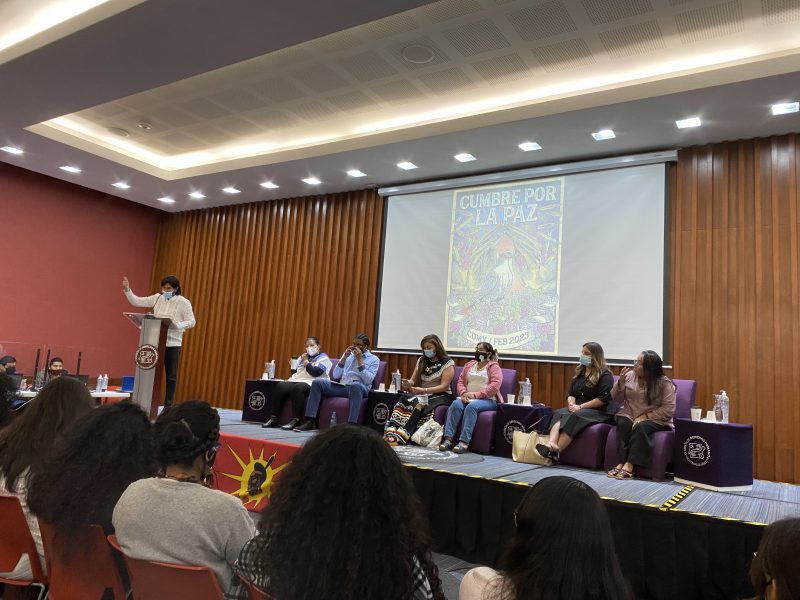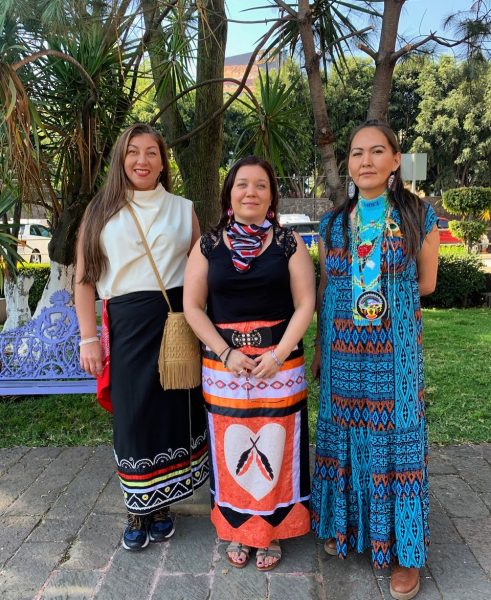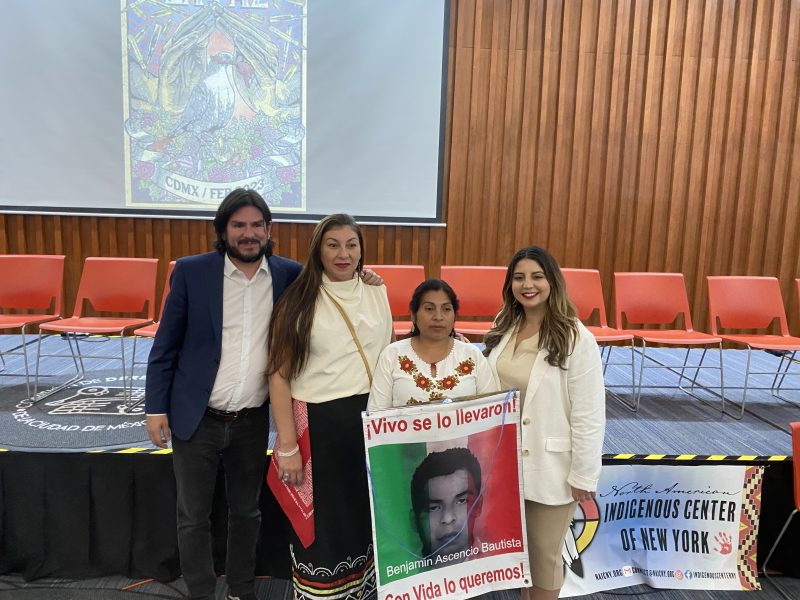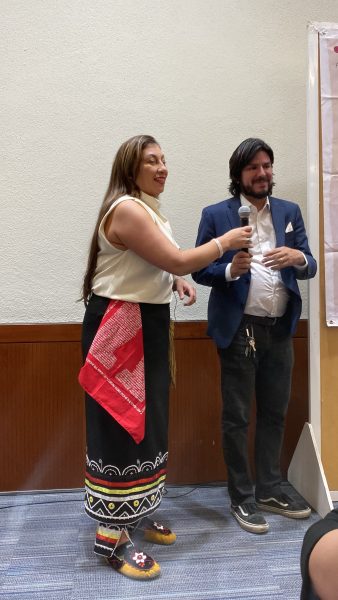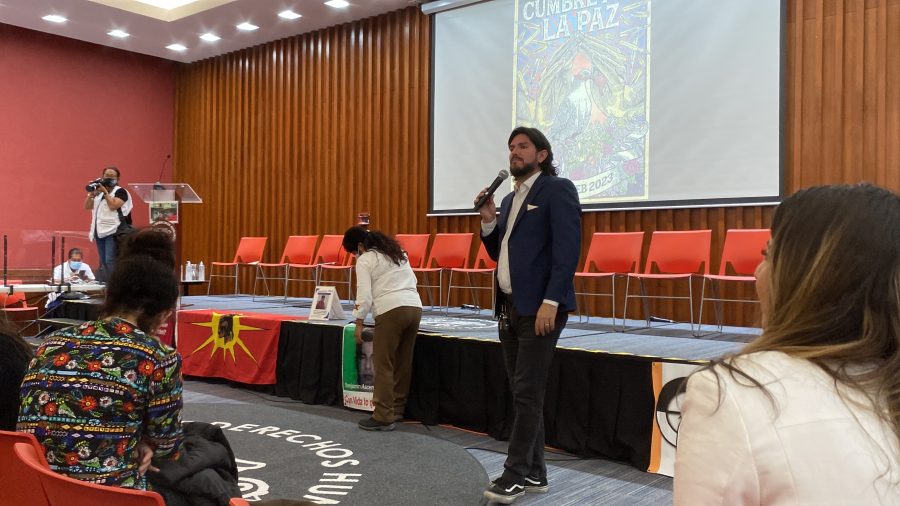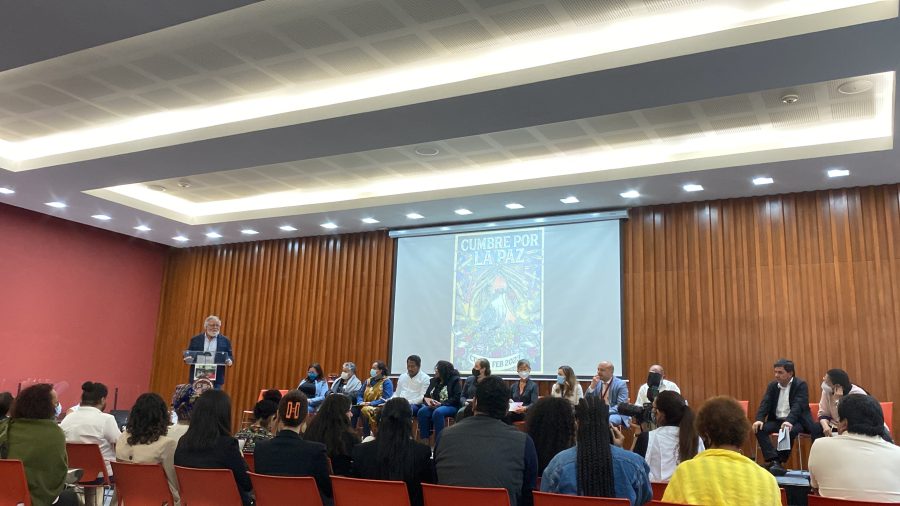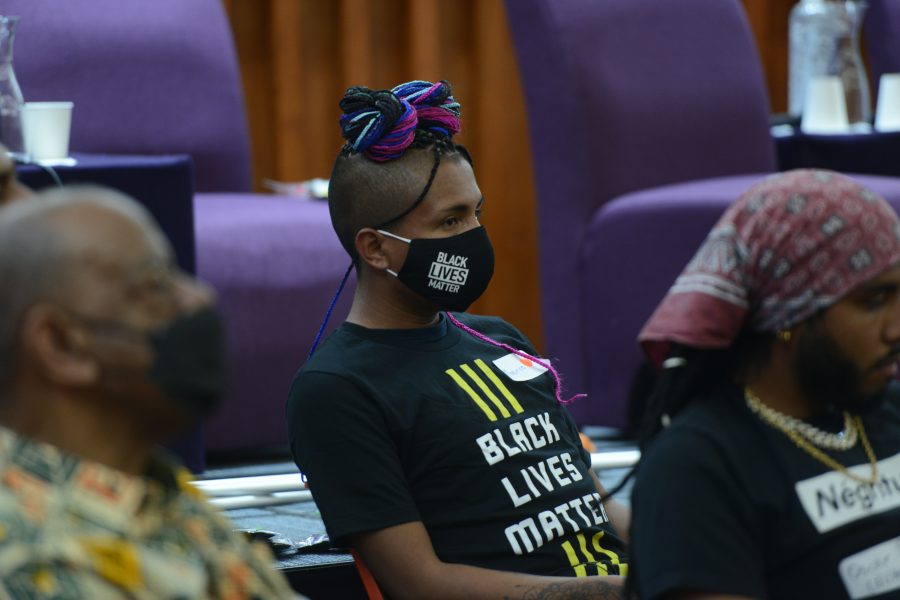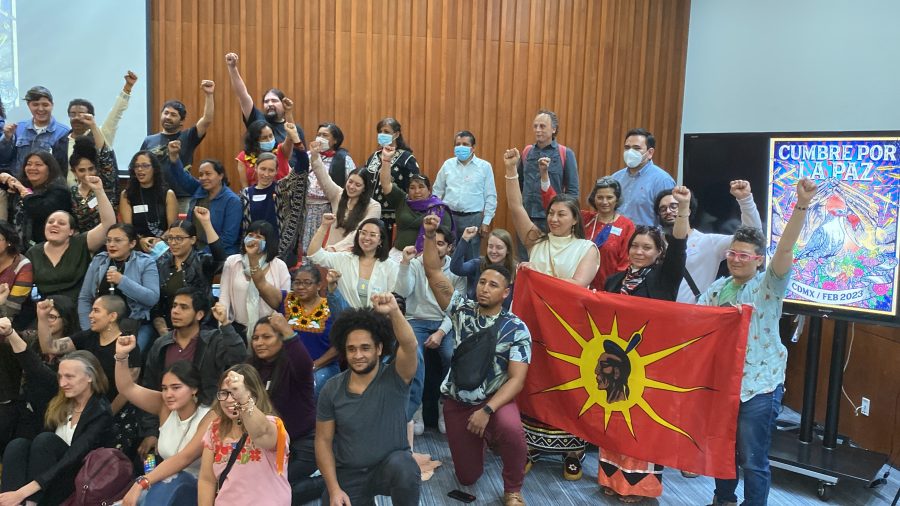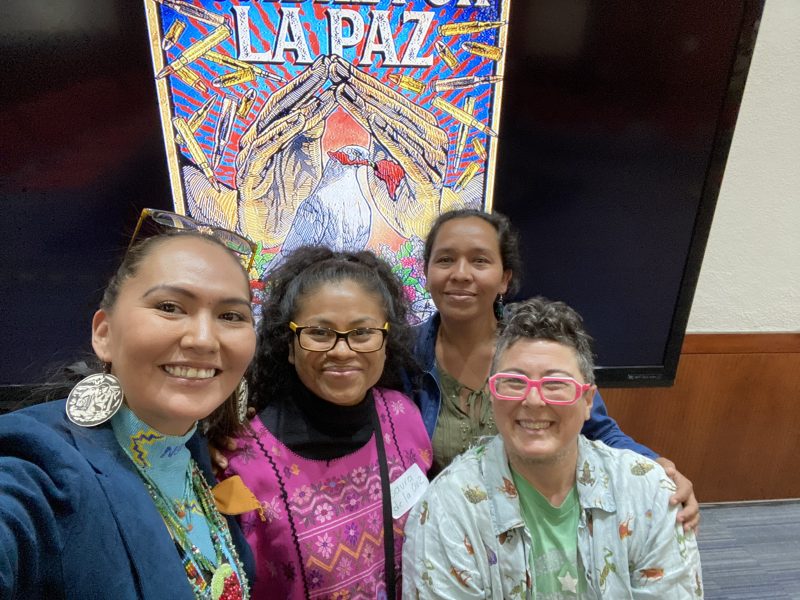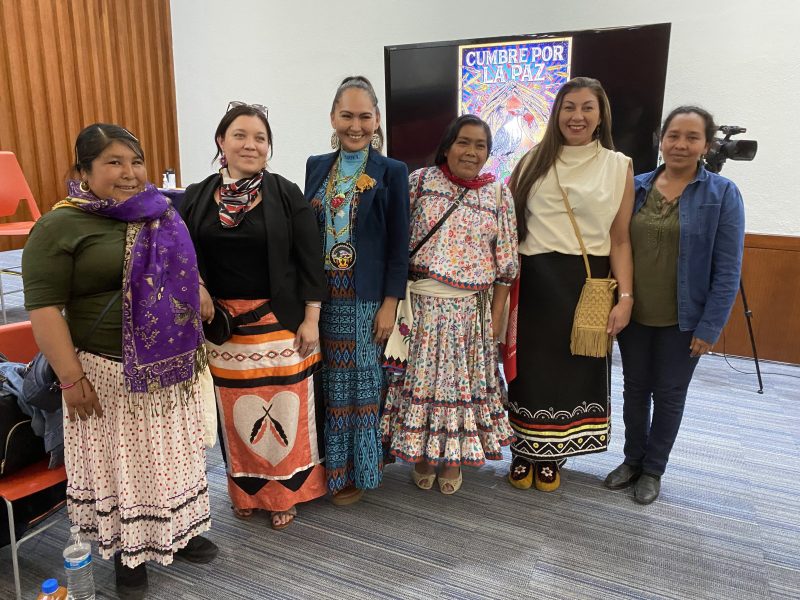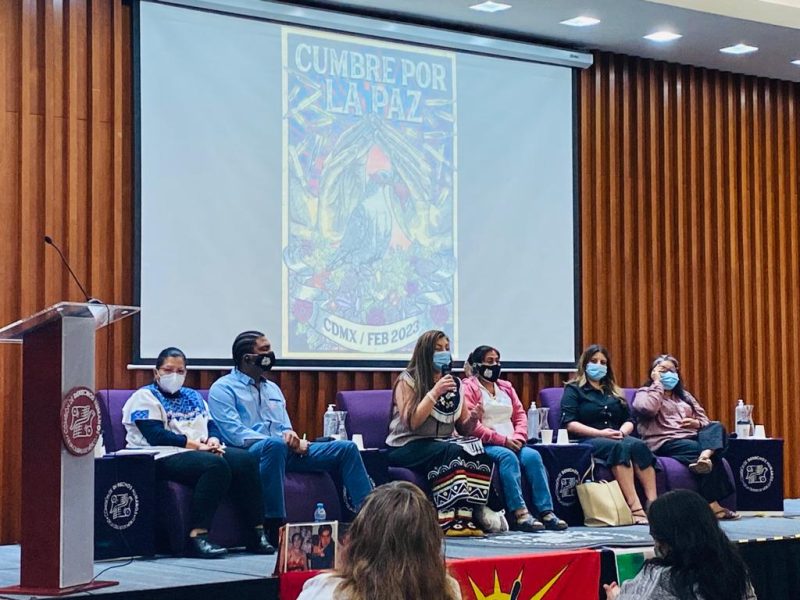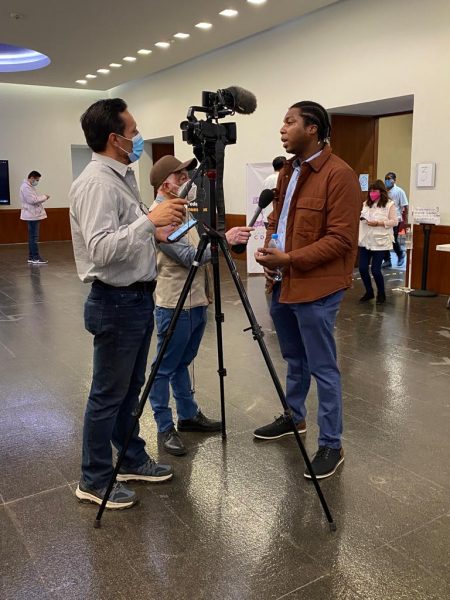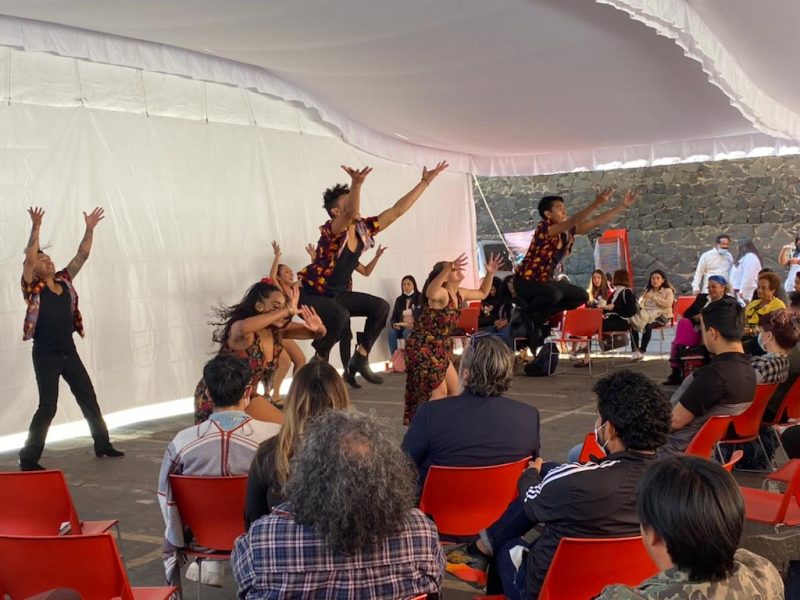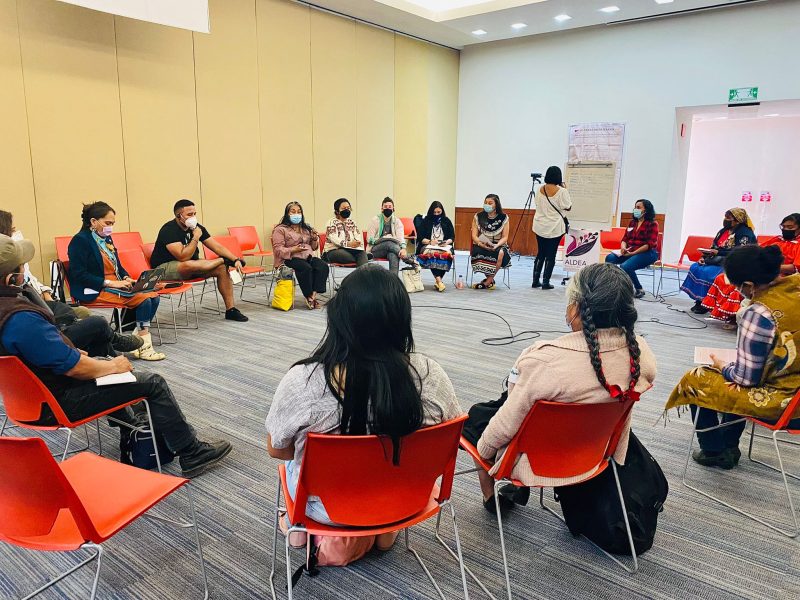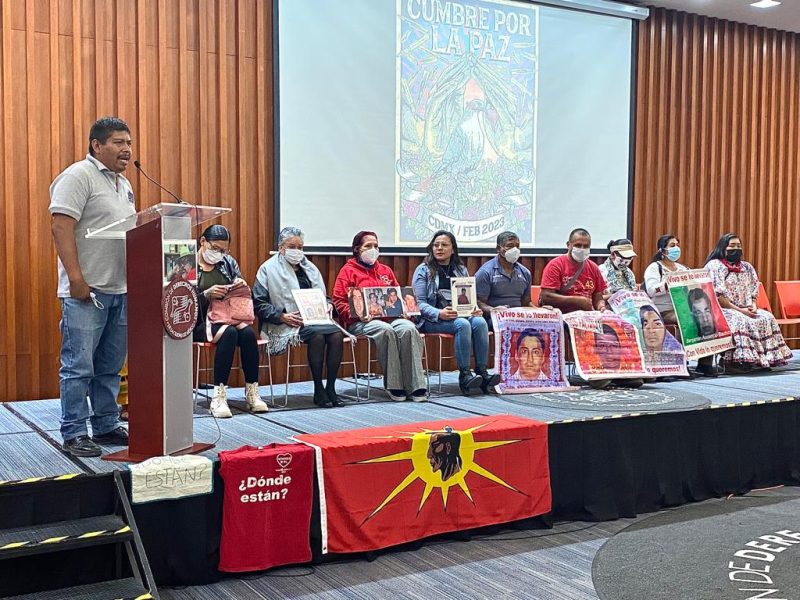Resistance, Resilience, and Raising Our Voices for a Brighter Future
Building a People’s Binational Agenda
Issues like gun violence, migration, inequality, and climate chaos know no borders. We are all bound together in the challenges we face. And we are equally bound together in seeking solutions.
For more than a year, Global Exchange, and allies from across the continent worked to bring together 300+ community leaders and civil society organizations from Mexico, the U.S. and beyond (Colombia, Honduras, Haiti, Canada) for the Peace Summit.
The Summit was held February 23 & 24 at the Human Rights Commission in Mexico City, Mexico. Participants representing victims of violence, Indigenous Peoples, migrants, and Black communities gathered for two days of sharing stories and struggles and worked to strategize together against discrimination, violence, injustice, poverty, environmental devastation and theft, and inequality in the region.
The Peace Summit is building a new kind of cross-border, multicultural and multilingual power that speaks in the voices of those traditionally excluded and marginalized and that puts our collective struggles, power, and perspectives at the center of the debate and the regional agenda for change.

People of color across borders share a history of oppression and resistance.
Now is the time to build a shared strategy for changing the system.
12 Demands
The Peace Summit set an agenda to develop a pathway for an end to the proliferation of gun violence and the militarized drug war; a stop to the destructive impacts of pollution and climate change that disproportionately impact people of color and low-income communities; and support for migrant populations with compassionate immigration policies, rather than criminalization.
- Give human rights the same priority that is given to the U.S.–Mexico commercial agenda; Establish a binational body for monitoring, evaluating, and promoting Human Rights.
2. Stop the illegal flow of weapons from the U.S. to Mexico and the exportation of weapons to police and military units with a history of corruption and human rights violations.
3. Governments from Mexico and the U.S. must generate conditions for life, peace, prosperity, justice, and happiness in all the communities of the region, allowing individuals and families to live prosperous lives without having to migrate.
4. Establish a path for complete demilitarization of territories and borders.
5. Open military bases to survivors and relatives of victims of violence. Bring all military involved in crimes and human rights violations to justice.
6. Cooperation in searches for forcibly disappeared persons; Establish mechanisms for justice and memory for cases of disappeared persons and Human Rights violations.
7. Change the migration management model to do away with detentions and deportations of migrants; Ensure inclusion and access to rights for the entire migrant population.
8. Recognize historical racism and end racism at all levels; Ensure that children, Indigenous Peoples, afro descendant and sexual diversity groups in contexts of violence receive competent specialized attention to access protection and justice.
9. Promote regional labor reforms/agreements in both countries that protect workers, unions, and punish employers that take advantage of forced or temporary labor, and abuse the migrant population.
10. Guarantee respect for Indigenous Peoples, Native Americans, and First Nations, their territories, and culture; Put their demands at the center of the Mexico-United States relationship, and conduct consultations with international observers for any action that affects their lives, environment and territory.
11. Change regional educational paradigms to make visible historically marginalized and undervalued communities and their knowledge; Create education that advances peace regionally; Guarantee access to education for underserved communities, with increased infrastructure and culturally competent curriculum design.
12. Strengthen binational cooperation to make data available and have transparency on migration, arms flows, human trafficking, and drug trafficking.

The Peace Summit is more than a moment;
It is a movement!
Global Exchange will continue to bring together Native American, Indigenous, Afro Descendant, migrant leaders and community activists to build our political power in the lead up to presidential elections in 2024 in the United States and Mexico.
Solidarity knows no borders, and the important work of the Peace Summit carries on.

